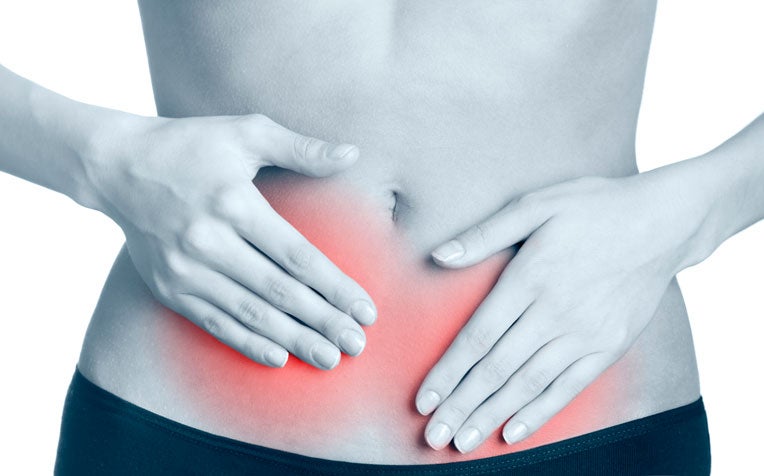
Premenstrual syndrome (PMS) Tips to manage your PMS symptoms.
WHAT IS PMS?
Most women menstruate over a span of more than 30 years, from early adolescence until the late 40s or early 50s. They usually get their periods regularly without any problems. However, there are those who suffer from menstrual disorders such as menstrual cramps, and heavy or irregular periods. While each woman’s reproductive health is unique, there are some menstrual disorders which are more common, such as premenstrual syndrome (PMS).
For the majority of women, PMS symptoms may be mild and tolerable. However, for a small group of women, these symptoms may be debilitating and may cause significant disruptions in their daily lives. They are said to be suffering from premenstrual dysphoric disorder (PMDD), a disabling condition marked by severe PMS that can adversely affect work and relationships with people. In this case, it is imperative to seek medical treatment to manage the symptoms.
Let our experts from the Women's Health & Wellness Centre at KK Women's and Children's Hospital (KKH), a member of SingHealth, tell you all you need to know about premenstrual syndrome (PMS).
HOW TO MANAGE PMS?
- Keep a PMS diary. Take note of changes such as irritability, moodiness, fluid retention, breast tenderness and food cravings, and include the details of your menstrual cycle – e.g. the first and last days of your menstrual period – and any ovulation symptoms. Keep this diary for at least three menstrual cycles to rule out other possible causes.
- Manage your stress. Rest up and relax with enjoyable activities, and try to limit stressful situations as far as possible. Activities such as meditation, tai chi or simple stretching exercises can help as well.
- Share your feelings with family or close friends if you find that your PMS symptoms are getting you down. You may soon realise you're not the only one 'suffering'!
- Regular aerobic exercise helps to keep you fit and eases some of the minor symptoms such as lethargy and insomnia. Aim to exercise at least three times a week, and increase the frequency during the premenstrual period.
- Dietary changes such as eating smaller meals more frequently, as well as cutting down on caffeine, high fat, sugary and salty foods can help to balance your blood sugar levels and reduce symptoms such as mood swings, fluid retention and bloating.
- Stay hydrated with water and fruit or vegetable juices, to help reduce symptoms such as bloating.
- Avoid alcohol and smoking, which can aggravate the symptoms of PMS such as breast tenderness, food cravings, mood swings and depression.
- Nutritional supplements such as calcium (a dose of 1200 mg/day can reduce PMS symptoms by half) and vitamin B6 (50–100 mg/day; toxic at higher doses) have been shown to be beneficial for easing PMS symptoms.
- Herbal remedies. Chasteberry (vitex agnus castus; aka agnus castus fruit extract) has been reported as being helpful for easing premenstrual symptoms such as irritability, anger, headaches and breast fullness. Herbs commonly used in traditional Chinese medicine (TCM) to ease PMS symptoms and to tonify the uterus include dang gui (angelica sinensis; aka Chinese angelica), bupleurum root (chai hu; radix bupleuri), poria (fu ling; sclerotium poriae cocos), tangerine peel (chen pi; pericarpium citri reticulatae), licorice root (gan cao; radix glycyrrhizae), white peony root (bai shao; radix paeoniae), mint leaf (bo he; herba menthae) and gingko biloba (bai guo).
Treatment for severe PMS
Medical treatments and psychotherapy are used when the symptoms are more severe. These include:
- Cognitive behavioural therapy which can help with problems such as anxiety and depression.
- Non-steroidal anti-inflammatory drugs for aches and pains.
- Oral contraceptive pills to stop ovulation and stabilise hormone levels, which can help to combat mood swings.
- Antidepressants such as selective serotonin reuptake inhibitors (SSRIs) may be the most effective treatment for PMDD and severe PMS for the relief of fatigue, depressed moods and sleep problems.
- Gonadotropin-releasing hormone analogue therapy (GnRH-a) is used when all else fails. These synthetic hormones create a temporary menopause and stop your periods by blocking the production of oestrogen and progesterone. Significant side effects include osteoporosis (thinning of bone).
Ref: T12
Contributed by

















 Get it on Google Play
Get it on Google Play